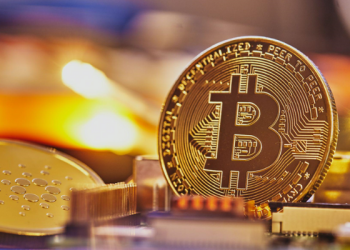In a startling development, Aminu Gwadebe, the Chairman of Bureaux de Change Operators (BDC), has pointed fingers at Binance, Nigeria’s prominent cryptocurrency exchange platform, for its alleged role in the precipitous fall of the naira. As the exchange rate reached a new low of N916 to a dollar on Wednesday, August 9, 2023, concerns are mounting over the widening gap between official and black market rates.
Gwadebe claims that Binance’s rapid expansion and growing influence are the prime factors behind the ongoing devaluation of the naira. He contends that Binance’s market dominance, with an impressive transaction speed of 1.2 million transactions per second, has positioned it as the favored platform for both investors and exporters, effectively making it a significant player in the parallel market. Gwadebe’s proposed solution to this predicament is to ban Binance’s operations, asserting that local markets and peculiarities can overcome the exchange’s liquidity advantage.
The disparity between official and black market rates is now a staggering N153 to a dollar, a significant gap that is anticipated to persist for the foreseeable future. The parallel black market has gained traction due to the implementation of new forex purchase regulations, which now mandate buyers to present Tax Clearance Certificates to authorized dealers and banks. This shift in demand has led buyers to prefer the black market due to its simplicity, requiring only cash or transfers.
The naira has experienced substantial depreciation in recent weeks, with a 4.37% drop on the parallel market during the first week of August alone. July 2023 saw an even more dramatic decline of 11.5% in the exchange rate. On August 8, 2023, history was made as the naira crossed the N900 to a dollar threshold for the first time.
In the wake of the forex turbulence, the British pound and the euro have also surged, reaching N1,171 and N872, respectively. A notable figure in the forex industry, Magdalene Ohire, highlights that the Central Bank of Nigeria’s policy demanding Tax Clearance Certificates for foreign exchange purchases has exacerbated the situation. This policy has inadvertently caused a growing divergence between the official and parallel markets, undermining the government’s efforts to bridge the gap.
Ohire explains that the widening gap has incentivized dealers to favor the black market, where they can obtain higher bids for their dollars. This, in turn, further weakens the official market and complicates the government’s objective of convergence.
As Nigeria grapples with the naira’s devaluation and the complex interplay between official and black markets, stakeholders are eagerly awaiting potential regulatory measures. The BDC operators’ allegations against Binance have added a new layer to the ongoing debate surrounding the cryptocurrency exchange’s influence on Nigeria’s currency stability.









